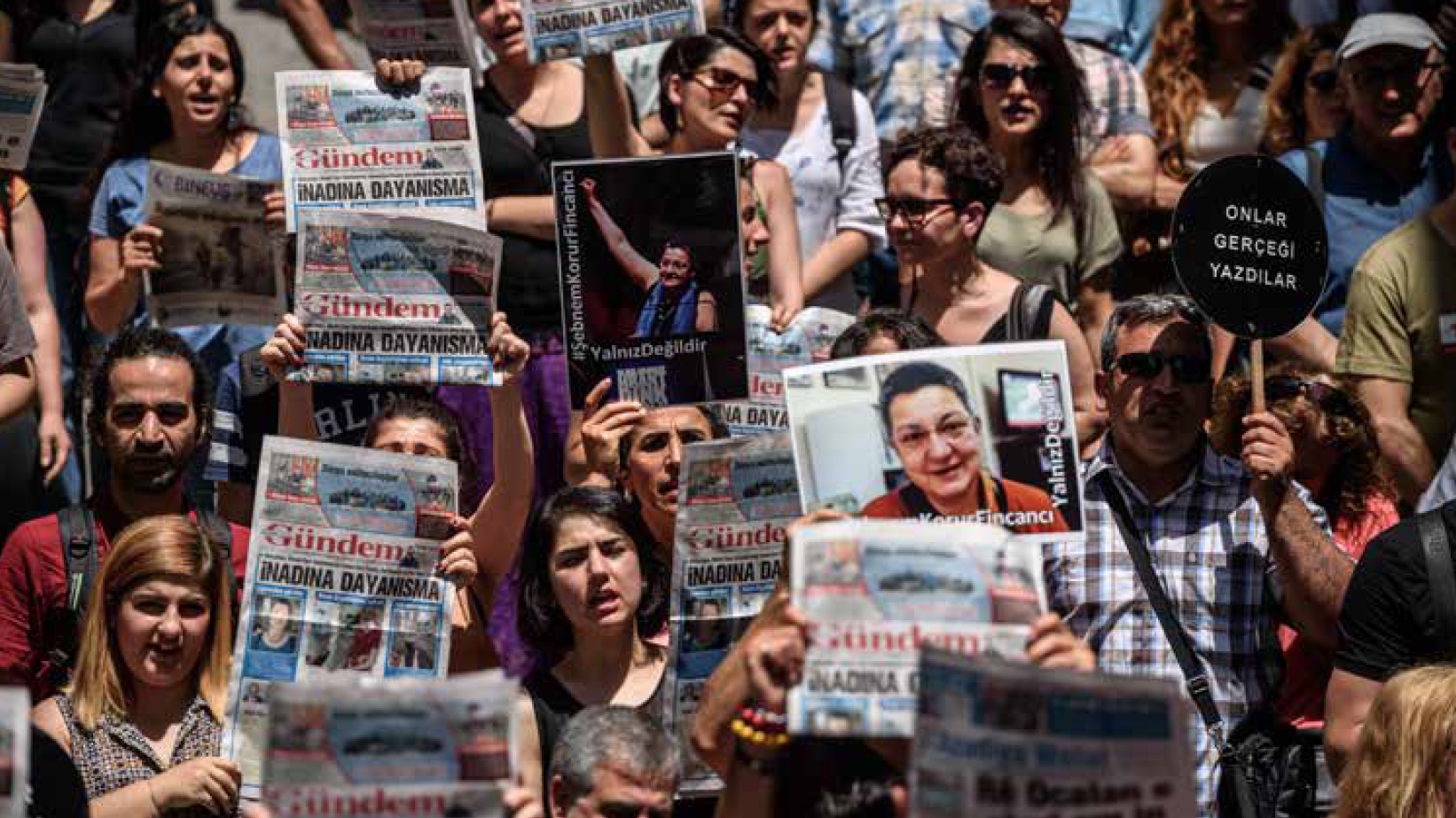Our values
At the turn of the 21st century, nearly half of the world population still lacks access to free information.
Reporters Without Borders (RSF) is the world’s biggest NGO specializing in the defense of media freedom, which we regard as the basic human right to be informed and to inform others.
Deprived of knowledge that is essential for managing their lives, denied their very existence, they are prevented from living in pluralist political systems in which factual truth serves as the basis for individual and collective choices.
Freedom of information is the freedom that allows you to verify the existence of all the other freedoms.Win Tin, Burmese journalist
Guaranteeing all the freedoms
There can be no freedom of thought without knowledge of reality. In 1948, the United Nations said in article 19 of the Universal Declaration of Human Rights that “freedom of opinion and expression” implies the right to “seek, receive and impart information and ideas through any media and regardless of frontiers.”

Guaranteeing human dignity
UNESCO’s constitution says the unrestricted pursuit of objective truth is indispensable to human dignity and freedom. At the same time, we must accept that the truth can take different forms and yield different and even contradictory results because no one is keeper of the sole truth.
RSF defends journalists (both professional and non-professional) who may hold opposing views as long as they are committed to reporting reality as they see it, in an independent manner.
Promoting democracy
Whatever the political system, it cannot reflect divergent interests and internal contradictions without independent watchdogs capable of challenging established authority. In dictatorial regimes, the state apparatus is able to dominate and a few monopolize most of the wealth because journalists are neutralized. In democracies, entertainment and positive reinforcement of desires may generate political apathy. Independent journalism is therefore crucial for a “high intensity” democracy.

Promoting development
Regardless of the economic doctrine we use to analyze human choices, it is clear that the choices made by state and private-sector actors should be based on accurately-reported facts. Freedom of information is a force for transparency and efficiency in state and private-sector procurement and state assistance for development. It is essential for the coherence of public policies, the prosperity of private enterprises, and sustainable growth that respects the balances in nature and human society.
Guaranteeing individual capacities
The economist and Nobel laureate Amartya Sen defines development as “the process of expanding the real freedoms that people enjoy.” Freedom of information is unquestionably one of the freedoms that help to develop the “capacities” of individuals, understood in the sense of their ability to successfully use public health and education systems and public debate, in short, to have control over their lives. Freedom of information is a sine qua non of growth in all the social, economic and political possibilities available to the individual.
